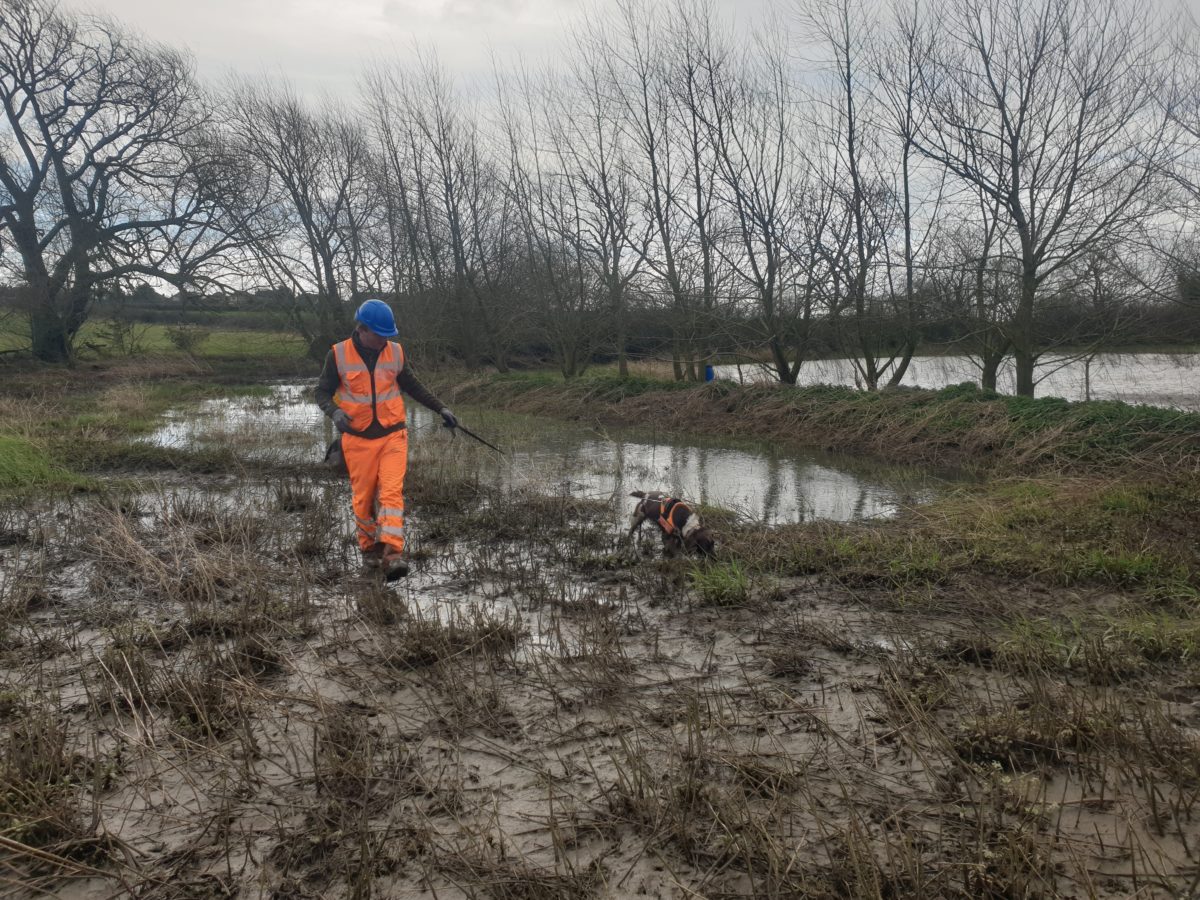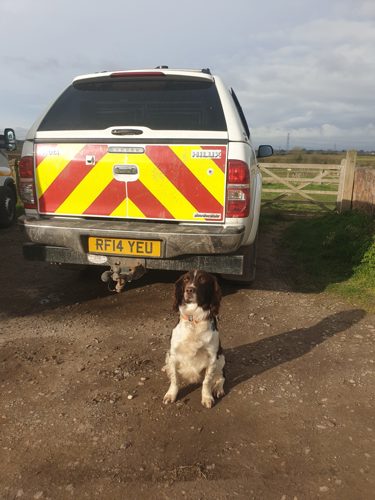
A Director of Derbyshire based ecology consultancy RammSanderson has obtained and completed mitigation for his 7th Great Crested Newt Low Impact Class Licence (LICL). The licence holder is Director Nick Sanderson, who is one of only c.60 qualified ecologists in the UK to be accredited to issue these types of licences.
The purpose of the Low Impact Class Licence is to help reduce the licensing burden for projects which will have a low impact on the conservation status of a site. Nick is able to register a site for licence works within 10 working days when it meets the Low Impact Class Criteria
The latest licence has been granted for a flood alleviation scheme in Leicestershire. Through close collaboration with the client team and sub-contract base we were able to devise and innovative scheme of mitigation. In this instance we were able to use Sniffer Dogs as Great Crested Newt detectors in order to streamline the translocation process offering significant cost savings and avoiding unnecessary exclusion measures using plastic amphibian fencing.
Commenting, Nick Sanderson said, “Other consultants are hesitant to use low impact class licences because they don’t fully understand the minute detail of the law. Due to our expertise and knowledge of these species and the habitats they prefer, we know when a low impact licence can be utilised. We find them an incredibly powerful tool in enabling licence developments works to proceed without the delays normally associated with applying for other licences.”
A normal licence can take up to six months to be granted, but because Nick has achieved Natural England ‘Earned Recognition” under LICL, the company is allowed to use its expert judgement to determine which licence is most applicable. However, RammSanderson is always open to an internal audit and therefore have to be certain that all conditions will be met.
The six other sites on which RammSanderson has successfully obtained a low impact licence include:
- School Expansion in Streatham
- Residential development in Long Clawson, Leicestershire
- New Training Academy for a utilities firm in Warwickshire
- Railway Embankment Stabilisation in Worcestershire
- Utilities Installation, Warwickshire
- Road Widening Scheme in Tyne and Wear
Great Crested Newt Low Impact Class Licence (GCNLICL)
Great crested newts spend the majority of their lives on land, but migrate to water in the spring to breed. Females lay their eggs on the submerged leaves of aquatic plants. Great crested newts will typically travel up to 500m from a breeding pond. However, this distance is dependent upon a number of factors including the quality of the habitat surrounding the pond and if the newts are migrating in which case distances may be less or more.
When a low impact licence is applied, we are able to screen off the pond and use sniffer dogs to locate any newts in the nearby area. Once all newts are captured we can successfully re-locate them to another area and ensure the development site is newt free.
The Bat Low Impact Class Licence (BLICL)
The place a bat lives is called its roost. Many bats shelter in buildings, behind hanging tiles and boarding or in roof spaces. For several weeks in summer, female bats gather in a maternity roost to have their babies. In winter, bats use hibernation roosts.
The Bat Low Impact Class Licence permits the disturbance and capture of bats and/or damage/destruction of no more than three low conservation significance roosts affecting no more than three of the more common species of bats present in small numbers.
The bat survey season begins in April and runs until September, during which time bats are dependably active, engaged in foraging and breeding activity. Outside of this period, bats are gearing up for hibernation over the winter and activity surveys are not possible.
When a site has a bat low impact licence we are confident that either bats are not present or that fewer than three roosts will need to be moved or disturbed.
If you are planning a development and need advice on the best ways to avoid delays in obtaining planning consent, please get in touch. Our aim to help land owners and farmers maximise value in ways that are empathetic to natural habitats.

Great Crested Newt Detection Dog